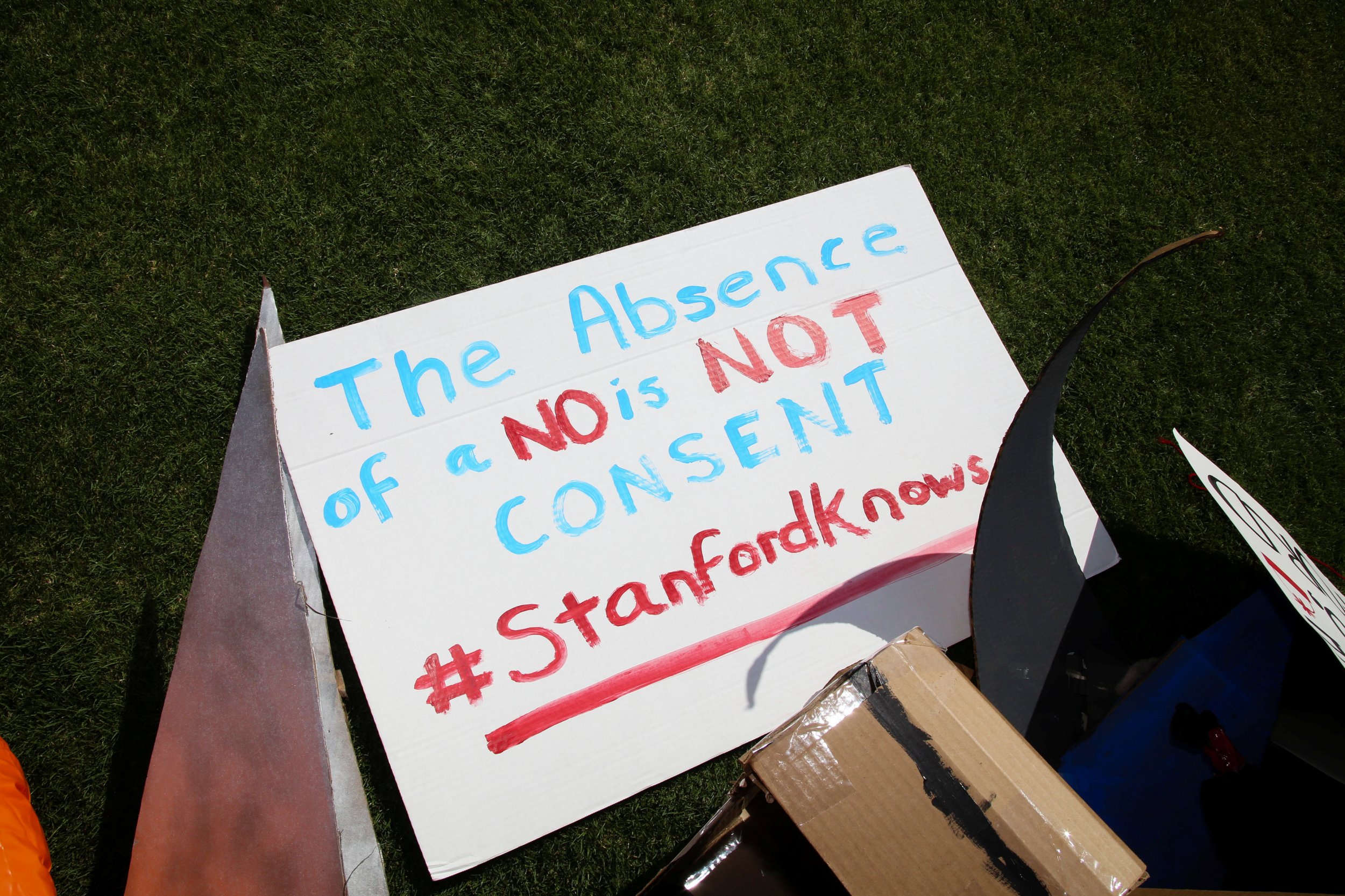
This article was originally published on The Conversation. Read the original article.
A number of universities have recently tried to combat the problem of sexual violence on campus by holding talks and workshops to ensure students fully understand the limits of consent and acceptable sexual behavior.
The National Union of Students, who have also been running consent workshops at numerous universities, believe these discussions about consent can only protect the student body. But despite noble intentions, these sessions have not been universally well received. Freshers at York University reportedly walked out of lecture theaters before consent talks took place, and a number of talks at other institutions have been boycotted.
Students have branded the sessions patronising and insulting, accusing the organizers of inferring they don't fully understand the limits of consent. These concerns echoed those raised last year when George Lawlor, a student at the University of Warwick, refused to attend a consent session as he didn't "have to be taught to not be a rapist".
But despite these protests, the fact is that we all need to have a basic understanding of consent to protect ourselves. Not only to recognize when we may have been victimized but to ensure we don't commit offences, too. Like Lawlor we may resent the implication that we may be labelled a "sex offender", but without arming ourselves with knowledge of the subtleties of the law we could fall foul of it.
Simple as tea?
We all understand "no means no" and campaigns such as the "consent, it's simple as tea" video have gone a long way in publicising and (perhaps overly) simplifying consent. In law, the definition of consent sets out that a person consents if he/she "agrees by choice, and has the freedom and capacity to make that choice".
There are also a number of highly publicized circumstances when it is assumed a person has not consented. Perhaps their drink has been spiked, they have been threatened with violence, or they are unconscious or asleep at the time the sexual act takes place.
However, when it comes to consent there are still grey areas we need to be aware of. For example, the impact of intoxication and deceptions on consent are less than clear. If you have sex with a drunken partner are they able to give consent to the sexual act? If a woman attends an event dressed as a man and meets a woman who consents to sexual touching—believing her partner to be a man – has she truly consented to sexual activity? Or if you tell someone you will wear a condom during sex but you then fail to wear one does that negate consent?
These are tough questions. We know that intoxicated consent may amount to consent if your sexual partner has retained the capacity to consent, that a gender deception could negate consent and that wearing a condom could be an integral part of the agreement to have sex. But the reality of consent will depend on the circumstances of each case and on the accused's state of mind.
Increased education
An awareness that consent is not simply a matter of whether someone has said "yes" is at the heart of these consent sessions. And providing students with guidance about sexual consent, appropriate sexual behaviors and debunking rape myths will ensure they make informed choices. Learning about these issues may be challenging, but it is never patronising or insulting.
The spotlight has been turned on this issue once again with the acquittal of Ched Evans for rape in a case that had turned on the issue of intoxicated consent. Calling for more education around consent Evans stated that, as a young footballer, "You get your gambling and drinking training but nothing else on top of that. In this day and age people need educating on alcohol and consent."
Given this, the problem is not that students are being singled out to receive classes on consent, but that this information is not being delivered more broadly—because it is clear that when it comes to consent there is still a lot that the wider public needs to learn.
Samantha Pegg is a Senior Lecturer in Criminal Law, at Nottingham Trent University.
Uncommon Knowledge
Newsweek is committed to challenging conventional wisdom and finding connections in the search for common ground.
Newsweek is committed to challenging conventional wisdom and finding connections in the search for common ground.
About the writer
To read how Newsweek uses AI as a newsroom tool, Click here.








